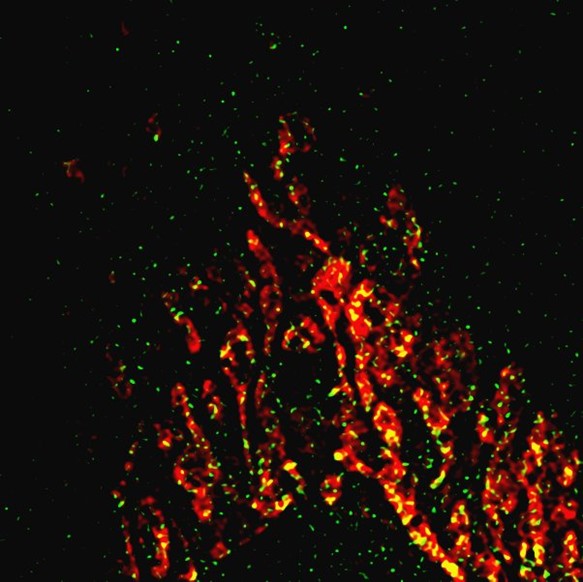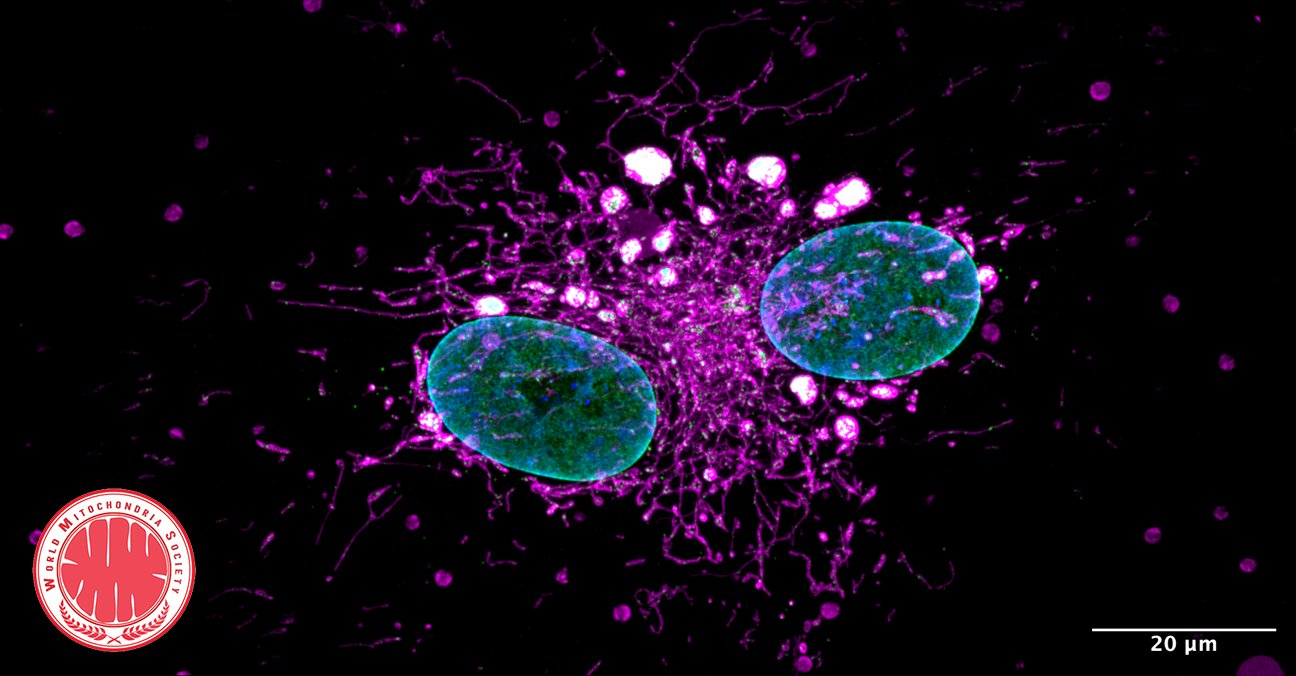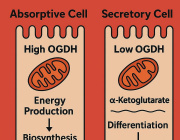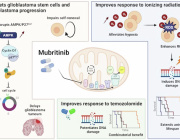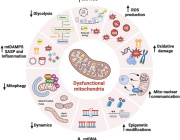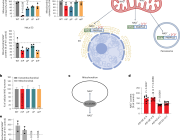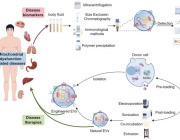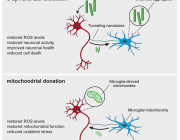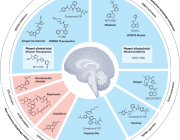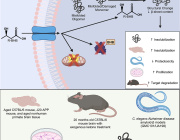A Potential Mitochondrial Link Between Life Stress and the Reversibility of Hair Greying in Humans
 Dr. Martin Picard, Associate professor of behavioral medicine at Columbia University Vagelos College of Physicians and Surgeons, USA will be joining the Targeting Mitochondria 2021 Congress and give a presentation entitled "A Potential Mitochondrial Link Between Life Stress and the Reversibility of Hair Greying in Humans".
Dr. Martin Picard, Associate professor of behavioral medicine at Columbia University Vagelos College of Physicians and Surgeons, USA will be joining the Targeting Mitochondria 2021 Congress and give a presentation entitled "A Potential Mitochondrial Link Between Life Stress and the Reversibility of Hair Greying in Humans".
Life stress causes neuroendocrine and metabolic alterations that influence mitochondria; and in turn, mitochondria produce signals and energy that influence pigment production that color our hairs. This presentation will describe a new approach to quantify human hair pigmentation patterns, demonstrating that human hair graying is rapidly reversible and linked to life stress. Individual hairs transitioning from their young-dark to old-white states, and reverting back to dark, show specific mitochondrial proteomic recalibrations pointing to a threshold-based metabolic mechanism for hair greying.
Targeting Mitochondria 2021 Congress
October 27-29, 2021 - Berlin & Virtual Congress
www.targeting-mitochondria.com
Introduction Remarks: Past, Present and Future
 Dr. Egbert Mik, from University Medical Center Rotterdam, The Netherlands, will join the 12th Targeting Mitochondria Congress in October 2021, to give a talk entitled "Introduction Remarks: Past, Present and Future".
Dr. Egbert Mik, from University Medical Center Rotterdam, The Netherlands, will join the 12th Targeting Mitochondria Congress in October 2021, to give a talk entitled "Introduction Remarks: Past, Present and Future".
During the sessin, Dr. Mik will explain the challenge of qualitative and quantitative assessment of mitochondrial function in vitro and in vivo, as well as future perspectives regarding this subject.
Targeting Mitochondria 2021 Congress
October 27-29, 2021 - Berlin & Virtual Congress
www.targeting-mitochondria.com
Dysregulation of Mitochondria-Lysosome Contacts by GBA1 Dysfunction in Dopaminergic Neuronal Models of Parkinson’s Disease

Dr. Dimitri Krainc, from the Northwestern University Feinberg School of Medicine, Chicago in USA will be will be joining the Targeting Mitochondria 2021 Congress and will demonstrate his study regarding the "Dysregulation of Mitochondria-Lysosome Contacts by GBA1 Dysfunction in Dopaminergic Neuronal Models of Parkinson’s Disease".
Dr. Krainc confirms that he recently identified the formation of direct mitochondria-lysosome membrane contacts that mark sites for lysosomal regulation of mitochondrial networks. However, mitochondrial contacts regulate lysosomal dynamics providing a new angle to studies of these organelles in neurodegenerative diseases.
Targeting Mitochondria 2021 Congress
October 27-29, 2021 - Berlin & Virtual Congress
www.targeting-mitochondria.com
The One-Carbon Pool Controls Mitochondrial Energy Metabolism via Complex I and Iron-Sulfur Clusters

Dr. Anna Wredenberg, from Max Planck Institute Biology of Ageing–Karolinska Institutet Laboratory, Karolinska Institutet, Sweden will be joining the Targeting Mitochondria 2021 World Congress, and will deliver a speech concerning "The One-Carbon Pool Controls Mitochondrial Energy Metabolism via Complex I and Iron-Sulfur Clusters".
Accoring to her recent studies, Dr. Wredenberg confirms that vital intermediary steps of one-carbon metabolism are localized to mitochondria, but it remains unclear how it connects to mitochondrial function. Additionally,The one-carbon metabolite and methyl group donor S-adenosylmethionine (SAM) is pivotal for energy metabolism. A gradual decline in mitochondrial SAM (mitoSAM) causes hierarchical defects in fly and mouse, comprising loss of mitoSAM-dependent metabolites and impaired assembly of the oxidative phosphorylation system. Complex I stability and iron-sulfur cluster biosynthesis are directly controlled by mitoSAM levels, while other protein targets are predominantly methylated outside of the organelle before import.
However, the mitoSAM pool follows its cytosolic production, establishing mitochondria as responsive receivers of one-carbon units.
Targeting Mitochondria 2021 Congress
October 27-29, 2021 - Berlin & Virtual Congress
www.targeting-mitochondria.com
The Mitochondriotropic DecylTPP Group Lowers Mitochondrial OXPHOS Supercomplex Levels and Induces a Glycolytic Switch
 Prof. Werner Koopman, from the Department of Biochemistry, Radboud Institute for Molecular Life Sciences, will join the Targeting Mitochondria 2021 Congress and will present a talk entitled "The Mitochondriotropic DecylTPP Group Lowers Mitochondrial OXPHOS Supercomplex Levels and Induces a Glycolytic Switch".
Prof. Werner Koopman, from the Department of Biochemistry, Radboud Institute for Molecular Life Sciences, will join the Targeting Mitochondria 2021 Congress and will present a talk entitled "The Mitochondriotropic DecylTPP Group Lowers Mitochondrial OXPHOS Supercomplex Levels and Induces a Glycolytic Switch".
Prof. Koopman will discuss the bioenergetic effects of mitochondria-targeted Trolox(MitoE10), in comparison with mitochondria-targeted ubiquinone (MitoQ10) and two mitochondria-targeting moieties (decylTPP, TPMP). Incubation with these molecules did not greatly affect cell viability of primary human skin fibroblasts (PHSFs) from healthy individuals and a patient with Leigh Syndrome (LS). Unexpectedly, MitoE10, MitoQ10 and decylTPP reduced the levels and activity of the first oxidative phosphorylation complex (complex I or CI) and of the amount of CI+CIII-containing OXPHOS super complexes. Functionally, these effects were associated with reduced cellular oxygen consumption rates, increased extracellular acidification rates , a less negative mitochondrial membrane potential (deltaPSI), a decreased mitochondrial size and elevated levels of hydroethidine-oxidizing ROS. Collectively, these results demonstrate that MitoE10, MitoQ10 and decylTPP lower the levels of CI and CI-containing super complexes in PHSFs, leading to mitochondrial dysfunction and glycolytic switch induction.
Targeting Microbiota 2021 Congress
October 20-22, 2021 - Paris, France & Online
www.targeting-mitochondria.com
Programmable Synthetic Gene Switches for Mitochondrial Gene Modulation
 Prof. Ganesh Pandian Namasivayam from Kyoto University, Institute for Advanced Study, Japan, will join the Targeting Mitochondria 2021 congress and will present his research on "Deleting DNA to Treat Mitochondrial Diseases".
Prof. Ganesh Pandian Namasivayam from Kyoto University, Institute for Advanced Study, Japan, will join the Targeting Mitochondria 2021 congress and will present his research on "Deleting DNA to Treat Mitochondrial Diseases".
According to his latest studies, mutations in mitochondrial DNA (mtDNA) cause mitochondrial diseases characterized by abnormal mitochondrial function. Although eliminating mutated mtDNA has the potential to cure mitochondrial diseases, no chemical-based drugs in clinical trials are capable of selective modulation of mtDNA mutations. In his presentation, Prof. Ganesh discusses the progress and therapeutic prospects of synthetic gene switches that can be programmed for targeted elimination of mutated mtDNA through sequence-specific adenine alkylation.
Targeting Mitochondria 2021 Congress
October 27-29, 2021 - Berlin & Virtual Congress
www.targeting-mitochondria.com
Comprehensive Multi-Omics Analysis Reveals Mitochondrial Stress as a Central Biological Hub for Spaceflight Impact
 Dr. Afshin Beheshti, from the NASA Ames Research Center, Moffett Field, USA will join us this year to present his recent findings on "Comprehensive Multi-Omics Analysis Reveals Mitochondrial Stress as a Central Biological Hub for Spaceflight Impact".
Dr. Afshin Beheshti, from the NASA Ames Research Center, Moffett Field, USA will join us this year to present his recent findings on "Comprehensive Multi-Omics Analysis Reveals Mitochondrial Stress as a Central Biological Hub for Spaceflight Impact".
Targeting Mitochondria 2021 Congress
October 27-29, 2021 - Berlin & Virtual Congress
www.targeting-mitochondria.com
Scientific Award of Targeting Mitochondria 2021
 At the end of Targeting Mitochondria 2021, the scientific committee awarded Prof. Alessandro Prigione for his presentation about "Patient-Specific Brain Organoids for Modeling Mitochondrial Diseases"
At the end of Targeting Mitochondria 2021, the scientific committee awarded Prof. Alessandro Prigione for his presentation about "Patient-Specific Brain Organoids for Modeling Mitochondrial Diseases"
Alessandro Prigione is a tenured Associate Professor of Pediatric Metabolic Medicine at the Department of General Pediatrics, Neonatology and Pediatric Cardiology at Heinrich Heine University (HHU) in Düsseldorf Germany.
The interest of the Prigione group is to develop induced pluripotent stem cells (iPSC)-based approaches for disease modeling and drug discovery of rare incurable neurological and neurodevelopmental disorders affecting mitochondrial metabolism. A specific focus is on Leigh syndrome, which is the most severe mitochondrial disease affecting children. His latest work (Inak et al Nature Communications 2021) employed human neurons and brain organoids from patients with Leigh syndrome to dissect the neuronal-specific disease mechanisms and led to the identification of novel disease targets and interventions.
Targeting Mitochondria 2021 Congress
October 27-29, 2021 - Interactive Online Congress
www.targeting-mitochondria.com







